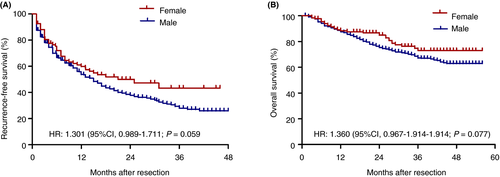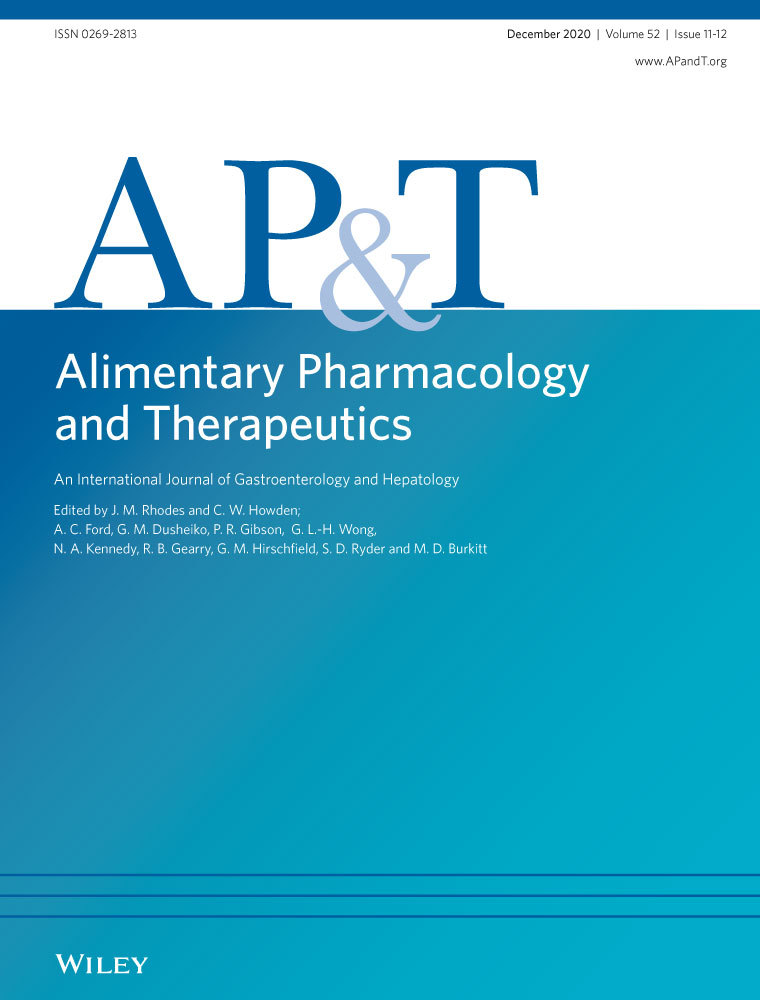Letter: sex disparity in prognosis of patients with hepatocellular carcinoma after resection
FUNDING INFORMATION
This work was supported by the National Major Special Science and Technology Project (2017ZX10203207) and “Guangxi BaGui Scholars” Special Fund.
Abstract
LINKED CONTENT
This article is linked to Rich et al paper. To view these article, visit https://doi.org/10.1111/apt.15917
We read with interest the recent study by Rich et al.1 This retrospective study included 1100 patients with hepatocellular carcinoma (HCC) staged from 0/A to D. Initial treatment included resection, ablation, orthotopic liver transplantation, stereotactic body radiation therapy, transarterial chemoembolisation, transarterial radioembolisation and best supportive care. They found that women had significantly better prognosis than men. However, subgroup analysis revealed that the longer overall survival was only found among patients <65 years.
We retrospectively analysed sex disparity among patients with HCC after hepatic resection in our centre. Data were collected from 921 consecutive patients (87% male) with primary HCC who were treated with hepatic resection between 1 January 2016 and 31 December 2018. Recurrence-free survival and overall survival were compared between female and male patients. The Kaplan-Meier method was used to approximate the recurrence-free and overall survival, and the significance of survival differences between the groups was determined using the log-rank test. At time of diagnosis, men were slightly younger than women (51.4 vs 53.3). Female patients had slightly higher but statistically non-significant recurrence-free survival (Figure 1A) and overall survival (Figure 1B) than male patients. Propensity score analysis found that female patients had significantly higher recurrence-free and overall survival than male patients (all P < 0.05). These findings were consistent with our previous study which included patients with HCC after resection.2

The influence of sex disparity among patients with HCC on prognosis has been controversial. Some studies2-6 are consistent with the findings of Rich et al,1 while others are not.7-9 More studies on the influence of sex disparity in HCC patients are required.
ACKNOWLEDGEMENT
Declaration of personal interests: None.
Open Research
DATA AVAILABILITY STATEMENT
Data available on request from the authors.




